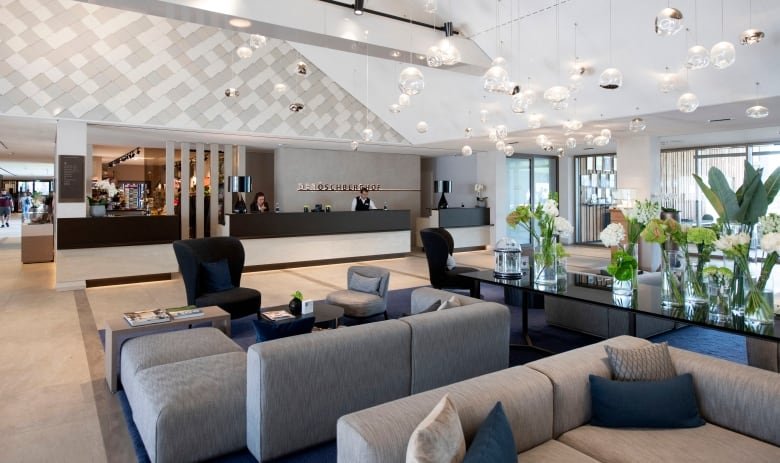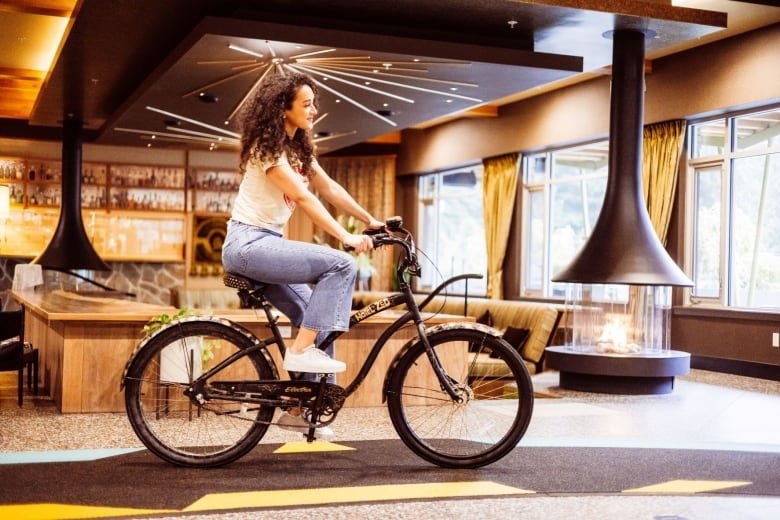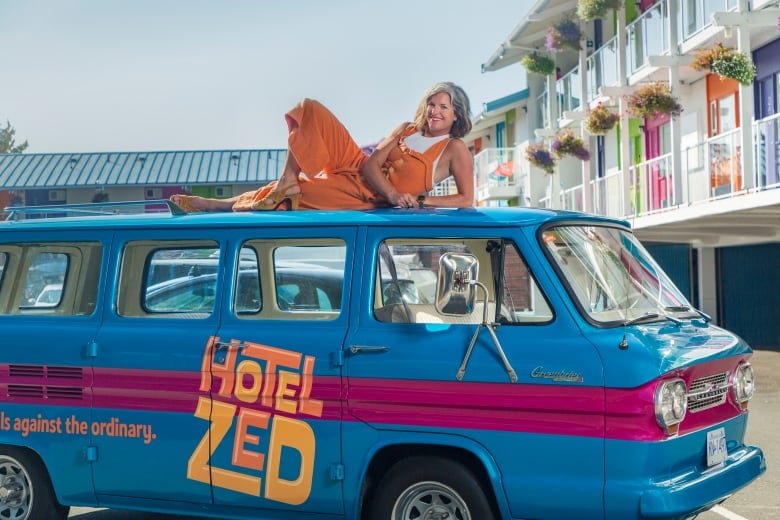
Maureen McCartney has been using Airbnb for her travel accommodations for about eight years. But she’s started using hotels instead, after her last few stays didn’t go so well.
For a recent visit to Seattle, she booked a basement suite that looked pretty good in the online listing — but in person, felt like something from the set of a Saw movie.
“It was damp down there. And they still had, like, the tools sitting there, like the circular saw, with the jagged edges on the wall, like a couple of them and other tools,” McCartney, who is from Victoria, B.C., told Cost of Living.
She’s not the only one. A Google search for Airbnb on Reddit surfaces complaints above anything else, including “Is Airbnb even worth it anymore?”; “Is this the downfall of Airbnb?” or “Staying in a terrible Airbnb right now [Canada].”
Then there’s one of the most recurring insults to injury: requiring guests to clean up after themselves — even if they pay a separate cleaning fee.
“Take out the garbage. Put everything in the recycle [bin]. Like, it’s as if you’re at home and the whole purpose of the vacation is not to have to do these things. And you don’t have to do them at a hotel,” said McCartney.
For McCartney, however, the bottom line was the price. She says a stay at an Airbnb used to cost her about a third of the cost for a similar hotel room. But now, she’s finding they just aren’t as good a deal as they used to be.
In recent years, the price difference between traditional hotels and short-term rental (STR) services have shrunk — and hotels have begun offering some amenities people expect from Airbnbs. With the two options becoming more similar, travellers have begun to rethink their options.
Pandemic bounceback
According to AirDNA, a company that analyzes prices in the short-term rental industry, the average daily rate for hotels in Canada was about 20 per cent higher than one-bedroom STRs in 2024; that difference was closer to 25 per cent in 2019. The figures don’t count taxes, or resort, cleaning and service fees.
Hotels saw the biggest drop in prices in 2021 and 2022 as COVID restrictions loosened, said AirDNA chief economist Jamie Lane, as they offered deep discounts to lure back travellers.
Short-term rental prices didn’t change as much, partly because many people were working remotely while travelling.
“COVID, I think, really helped them out,” said Makarand Mody, an associate professor who teaches hospitality marketing at Boston University. “People wanted the safety and the security of a private space, which Airbnb was able to provide with entire homes in particular.”

Fast forward a couple years, and things would change again. “We saw this ridiculous bounceback from COVID, where people started traveling almost with vengeance,” said Mody.
Much of that bounceback came from business travellers using hotels, who he said typically don’t use Airbnbs or other STRs.
Airbnbs — like everything else — have become more expensive to operate with jumps in utilities, insurance costs and interest rates. For the year ending in August 2024, the average daily rate before fees for all short-term rental listings in Canada was $261.47 — almost 47 per cent higher than in 2019.

Still, Airbnb and other short-term rental services did change the value conversation for many travellers.
Instead of just giving you a bed and a room, some hosts offer an entire apartment or home — multiple bedrooms, a kitchen and other amenities — making it a better choice for large groups. Others offered a unique stay, like in a yurt or a treehouse.
In a statement to CBC, Airbnb says it “allows travellers to explore many more places, and often more affordably, than hotels” by offering “over 8 million listings worldwide and more than 100,000 cities and towns with listings.”
It continued by saying that nearly half of Airbnb’s Canadian listings are in populated areas that don’t have hotels.
The statement also took a swipe at new government regulations on short-term rentals, saying they “are leading to unfortunate but predictable consequences including hotel prices at an all-time high, and a limited supply of overall accommodations.”
From mom-and-pop to big business
Mody says we shouldn’t be surprised that Airbnb isn’t a market disruptor anymore — it’s big business.
“A lot of Airbnbs went from being mom-and-pop operations to largely professionally run operations, right?” he said. “So these are either property managers that are running these properties or, you know, multi-unit owners that actually know how to make money off Airbnbs.”
More recently, hosts are using dynamic pricing just like hotels or ride-hailing apps. According to AirDNA, over the six nights Taylor Swift is performing in Toronto next month, the average daily rate for short-term rentals is $320, up 57 per cent from the same period last year.
CBC’s Erika Morris examines the impact of platforms like Airbnb in this fifth video in a series unravelling Quebec’s housing crisis.
All of these changes mean people are giving hotels a second look.
“When Airbnb used to be significantly cheaper, it made sense — I’ll go through the inconvenience for the money that I’m saving. But now for the same price … I’m getting a human being that I can actually talk to when I’m at the hotel,” Mody said.
“If you think about the psychology of our customer, that value proposition has flipped now.”
A new hotel experience
Some hotels are taking a page from Airbnb’s playbook, offering more space and amenities for larger groups.
Hilton and Marriott have been expanding their “extended stay” brands (Homewood Suites and Residence Inn, respectively) which offer one- or two-bedroom suites with kitchens and separate living areas.
Other hotels have leaned into giving guests anything but a cookie-cutter experience.

If you go to one of Hotel Zed’s three locations in B.C., you might see a bike path running through a lobby, a space to visit local psychics, or a mini disco.
“It’s got at least 12 disco balls. And it is a John Travolta lit dance floor,” said Mandy Farmer, owner of Hotel Zed.
Farmer says she got the idea for Zed when travelling for work and seeing hotels she described as “beige, bland boxes thinking, ‘God, this is so boring.'” She was also inspired by her own experiences with Airbnbs.

“I loved getting away for girls’ weekends where we’d rent, you know, a house. So we started building family rooms that didn’t just cater to the family of four,” she said.
“They’ve got these huge living rooms and big kitchens. And so suddenly now this is more of that experience where it’s homey and you can bring more people in together to enjoy it.”
While price was the biggest factor in nudging Maureen McCartney to using hotels again, she says she’s conscious that scaling back on Airbnb’s rapid expansion could help put more homes on the market as Canada faces an ongoing housing crisis.
She adds that a condo building filled with permanent residents is probably healthier for the community, including nearby local and family-owned businesses.
“I think Airbnb just sucks the life out of a community. And we need to look after the local community before tourism,” she said.















